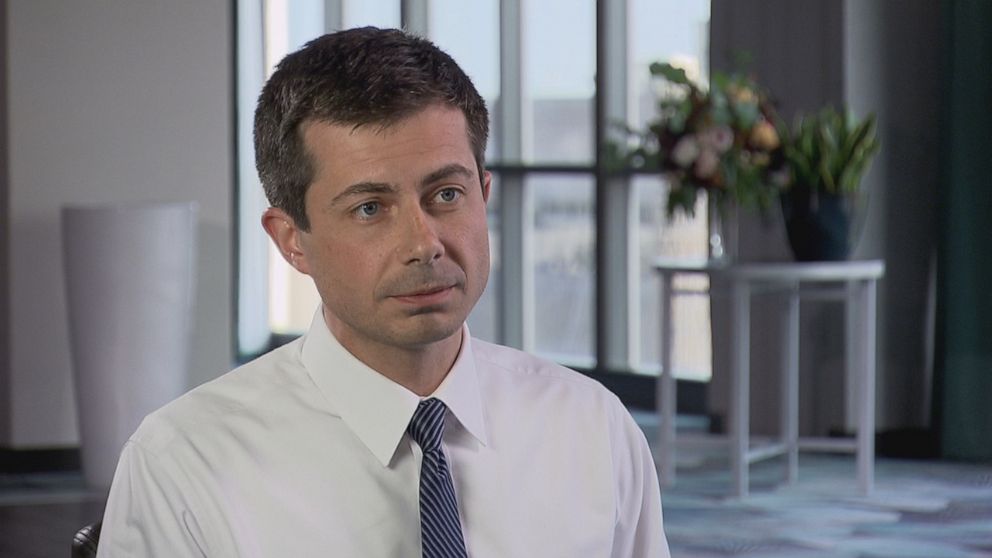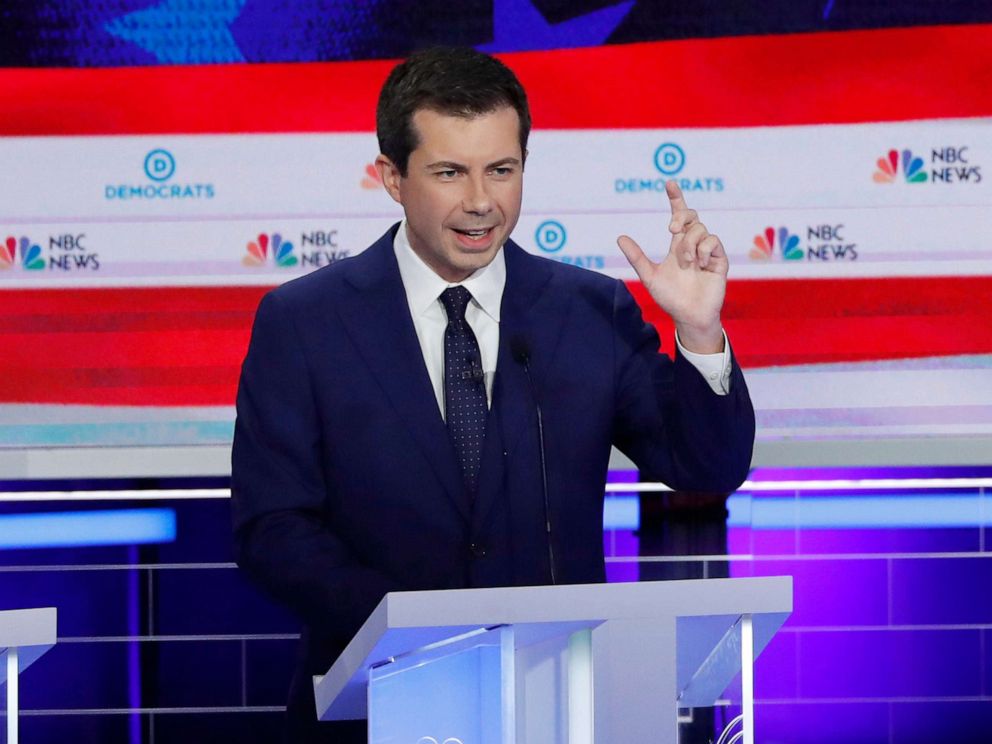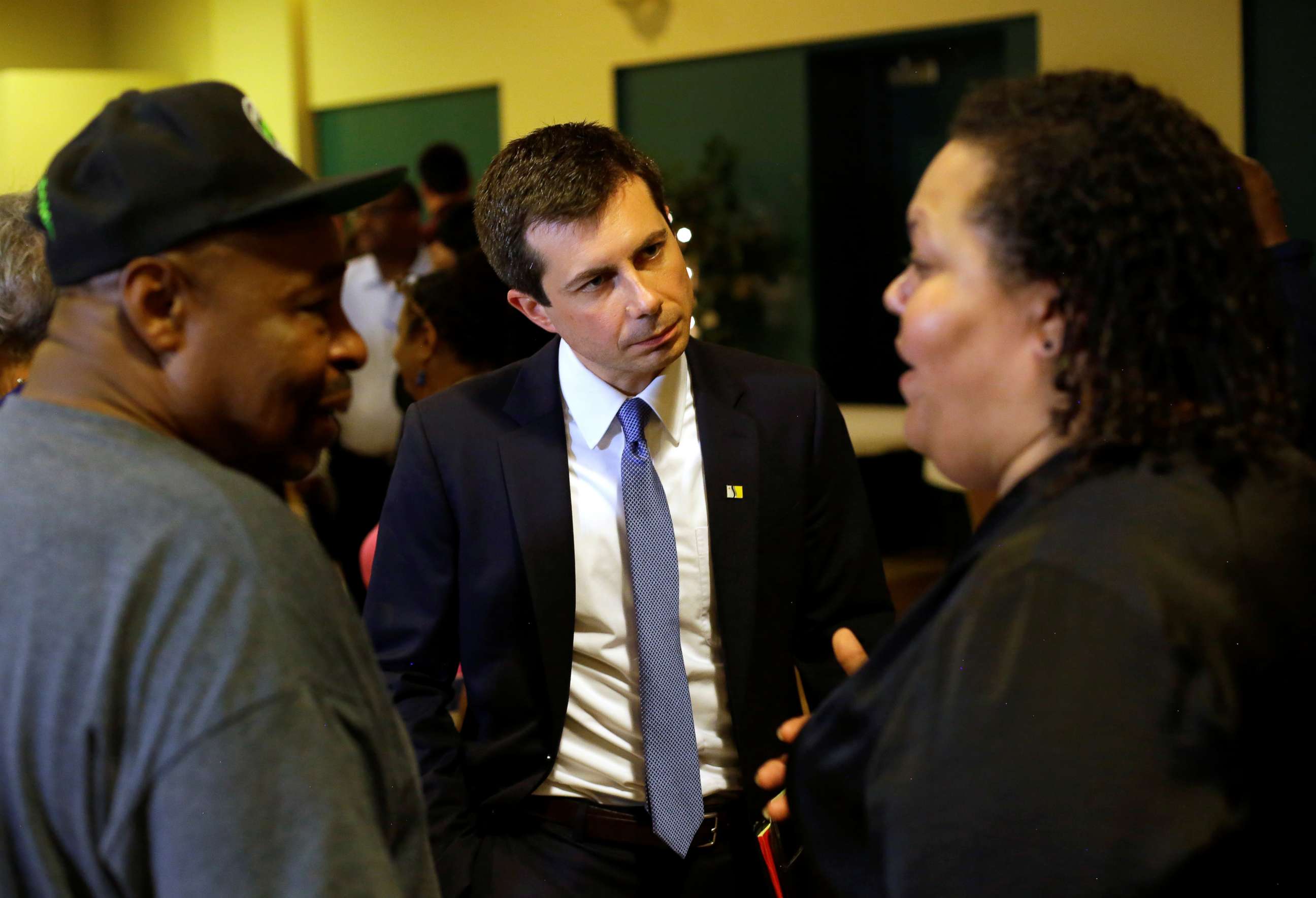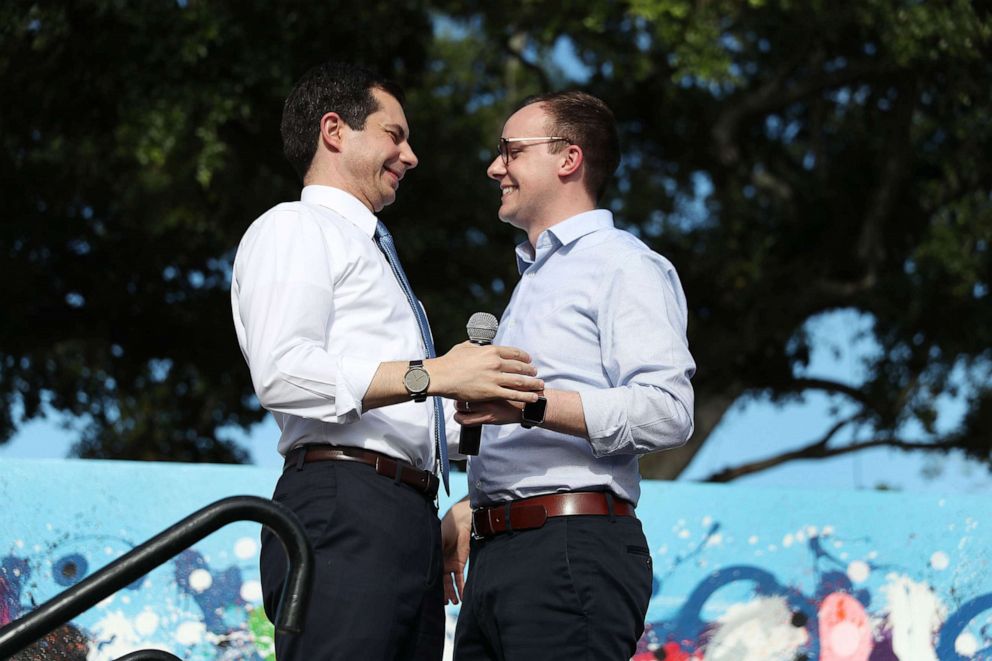Pete Buttigieg talks rising stardom, police shooting of a black man in South Bend
Buttigieg, a 2020 hopeful, recently faced the biggest test of his campaign.
Pete Buttigieg, 2020 Democratic presidential candidate and mayor of South Bend, Indiana, has risen from what he calls “total obscurity” to become a star in just a matter of few months.
“We’ve been able to go from total obscurity — I mean, an email list that was about what you’d expect from a Midwestern mayor -- to leading the entire Democratic field in fundraising, and vaulting into the top five among the candidates,” Buttigieg, 37, told “Nightline.”
“I mean, I’m in the top tier of a candidacy mix of two dozen people, almost all of whom were dramatically more famous and well-funded than I was six months ago,” he added.
*Watch the full story on "Nightline" TONIGHT at 12:35 a.m. ET on ABC*

But that’s not to say that meteoric rise has been easy.
Most recently, Buttigieg faced the biggest test of his campaign yet after a white police officer shot and killed a black man in his city on June 16. The fallout from the incident exposed the estranged relationship between the city’s black community and its police department.
Following the incident, Buttigieg canceled campaign events around the country to return to South Bend, where he held a town hall a week after the shooting to address the community's concerns.
The officer, Sgt. Ryan O’Neill, remains on paid administrative leave, sparking a petition that called for his suspension without pay earlier this week. To that, Buttigieg told “Nightline” that it wasn’t in his power to make those decisions.

“I know that some people imagine that a mayor sits up there in the office and decides who is in trouble, who’s fired and who goes and and who goes down,” Buttigieg said. “But we have a legal system here and it’s constraining.”
The local Fraternal Order of Police claims Buttigieg is prejudging O'Neill for political gain and called for him to recuse himself from any decision making.
“Mayor Buttigieg has repeatedly shown that he’s more concerned about boosting his own presidential political campaign than ensuring a fair investigation about an incident where a veteran police officer was forced to defend himself when a dangerous felon attacked him with an eight-inch hunting knife,” Harvey Mills, president of the South Bend Fraternal Order of Police, said in a statement.
The mayor explained that under Indiana law, only a Board of Public Safety -- comprised of five civilians appointed by the mayor -- can suspend or fire an officer involved in a shooting.
Buttigieg, an Iraq War veteran, referred to his work as mayor as an example of what he can do as president. He said that since he was elected seven years ago, the city’s downtown is experiencing a “renaissance.”
But he noted that this growth needs to be balanced by investment in poorer parts of the city that are less supported. He said that numerous efforts to diversify the police force haven’t been as successful as he would like, but that he will continue to focus on this issue.

Julie Chismar, Buttigieg’s high school economics teacher who has also worked with him on his mayoral campaigns and now his run for president, said she stands by the candidate because of how genuine he is.
“There is no public persona and he is always open,” she told “Nightline.”
“One thing about Peter is that he continues to learn,” Chismar said. “He will take someone’s suggestion and explore it to see if there is a better way to do something. He will always reevaluate and he is not going to abandon any project.
"Because...if it is good for the people," she added, "it is going to improve their lives — that’s what it’s about.”

His willingness to be open — he came out as gay during his 2015 reelection campaign — and working hard for his constituency is what he says got him his second term as mayor.
“I got reelected with 80% of the vote in a socially conservative community because people were more interested in the fact that the city was coming back and the way that I had served this community," he said. “I believe the same will happen at the national level.
"This country has shown time ... and again its ability to outgrow prejudices — never full and never completely — but certainly enough that the country can make a good choice based on the merits of a candidate for president,” he added.
Buttigieg said he wouldn’t be a presidential candidate if he didn’t think he was ready.
“What we need right now is leadership that can recognize the accelerating pace of change that we’re dealing with, the kind of changes in our economy and in our politics that make the times we’re living in — frankly, the presidency we’re living under right now — even possible,” he continued. “If we’re not dealing with the causes, then we’re never going to be able to deal with the symptoms.”




